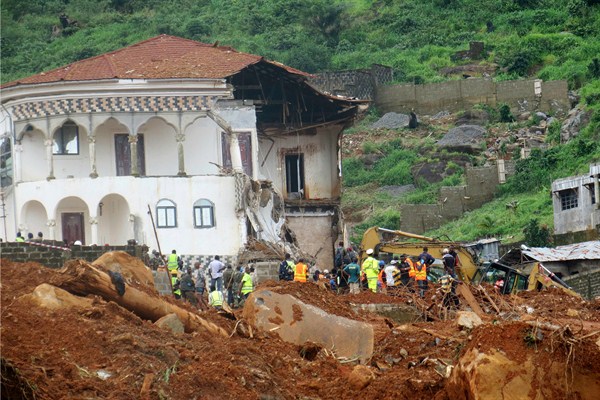The death toll from last week’s devastating mudslide in Sierra Leone is likely to pass 500, with several thousand more people made homeless by the destruction left in its wake. The scale of the disaster was unparalleled, but flooding in the capital, Freetown, happens every year during the August rainy season. In 2015, at least 10 people were killed in the city by rising water; Kroo Town, one of Freetown’s largest unplanned neighborhoods, or informal settlements, has flooded every year since 2008. The major cause of the mudslides and flooding, according to Joseph Macarthy of the Sierra Leone Urban Research Centre, is “the chaotic development caused by the rapid urbanization of Freetown . . . exacerbated by the fact that town planning is almost nonexistent.”
Freetown’s population has grown tenfold since Sierra Leone’s independence in 1961. Given its topography, with the Atlantic Ocean on one side and mountains rising quickly up in the interior, space is at a premium. Both affordable land and adequate housing are in increasingly short supply: A recent estimate suggested that the current deficit of 166,000 houses will grow to 280,000 by 2028. Coherent urban planning, so urgently needed in the city, is notably absent. This is due to a combination of a lack of capacity and resources at the Freetown City Council and, most importantly, a lack of sustained political will to act from the government.
One result of this lack of urban planning is the proliferation of illegal house construction throughout Sierra Leone’s capital. The government’s failure to enforce a moratorium on building in the Western Peninsular Forest, a protected natural area south of central Freetown, has been exploited by individuals at all levels of society. The victims of the mudslides were poor residents of informal settlements that had encroached into this area, but as Braima Koroma of the Sierra Leone Urban Research Centre points out, residents also came from the elite, with “top civil servants and senior military and police officers build[ing] houses” as well.

